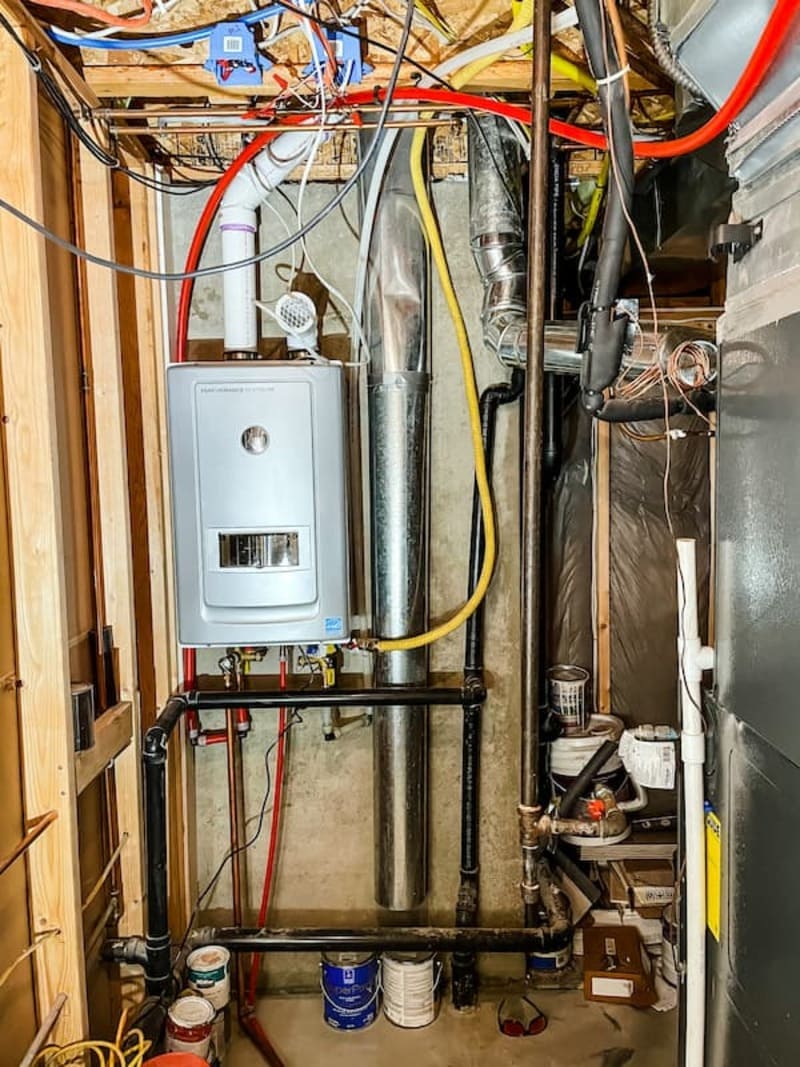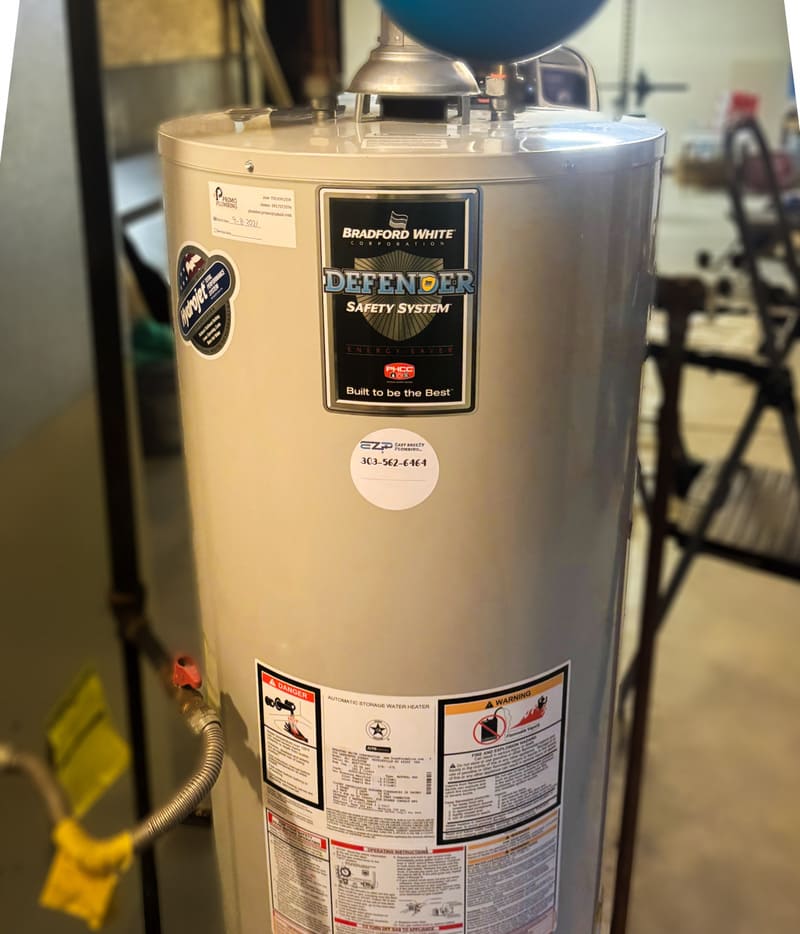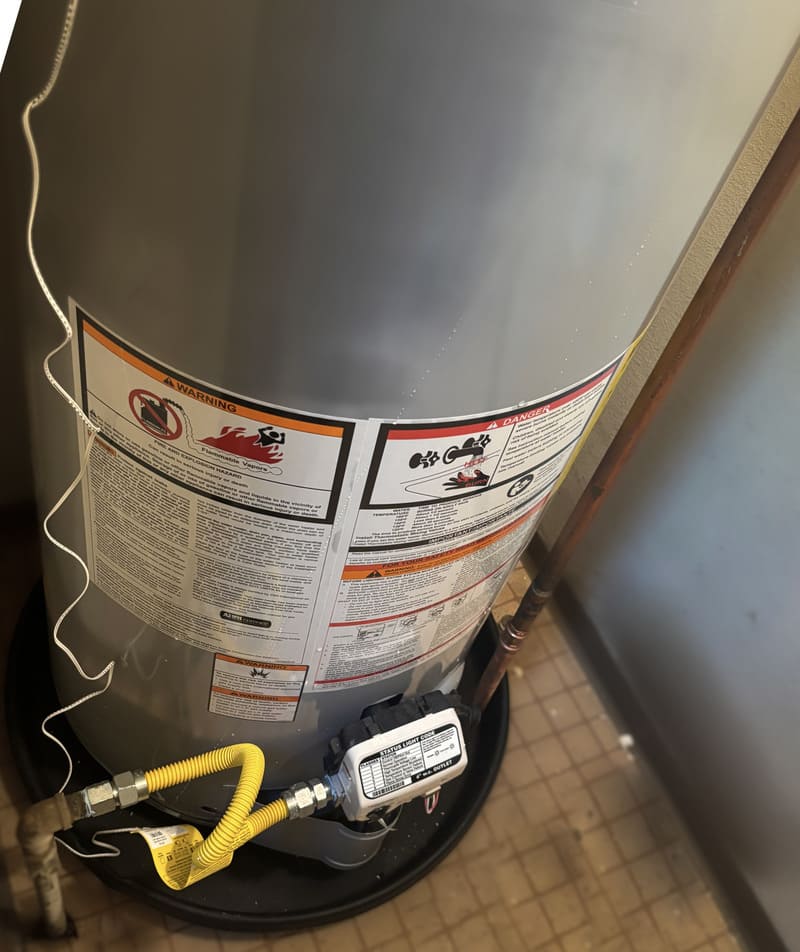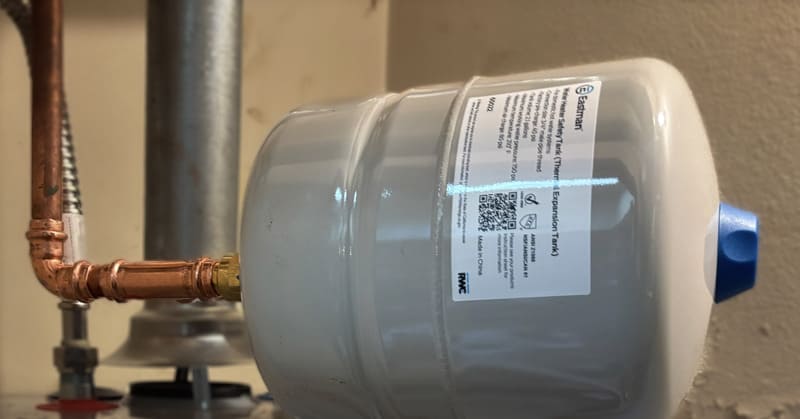
When it comes to upgrading or replacing your water heater, you have a world of options at your fingertips. Gone are the days when a single type of water heater would suffice for every home. Whether you’re dealing with a broken unit, inadequate hot water supply, or simply want to make your home more energy-efficient, understanding the variety of water heater types and features available will help you make the best decision for your home.
1. Tankless Water Heaters: Endless Hot Water on Demand
If you're tired of running out of hot water halfway through your shower, a tankless water heater could be your solution. Unlike traditional tanked models, which store a limited amount of water, tankless heaters heat water as you need it. This means you'll never run out of hot water, and you can enjoy instant hot water for showers, dishes, and laundry.
Tankless models are also energy-efficient because they only use power when hot water is needed, so you're not wasting energy by keeping a whole tank of water hot 24/7.
2. Traditional Tank Water Heaters: Reliable and Familiar
For many homeowners, the tank water heater is the tried-and-true option. These units store a large amount of water, typically between 40 to 80 gallons, in an insulated tank that stays hot until you need it. Tank water heaters are generally more affordable upfront and come in electric, gas, and propane versions.
However, keep in mind that they can run out of hot water if the demand is high—so if you have a larger family or frequent guests, you may want to consider an upgraded model with a higher recovery rate.
3. Electric vs. Gas vs. Propane: What’s the Best Fuel Source for You?

The type of fuel you use can greatly affect your water heater's energy efficiency and operating costs. Here's a breakdown of your options:
- Electric Water Heaters: These are popular for homes with easy access to electricity. They tend to be simpler to install, especially if you’re replacing an old electric model. However, they can be more expensive to operate compared to gas options.
- Gas Water Heaters: Ideal for homes that already have natural gas lines installed, gas water heaters can provide hot water faster and are generally more affordable to run than electric units. They do require ventilation, though, which could mean extra installation costs.
- Propane Water Heaters: If you're in a rural area where natural gas isn't available, propane water heaters are an excellent alternative. They provide the same benefits as gas models but require a propane tank to be refilled.
4. High-Efficiency and High-Recovery Models: The Smart Choice for Larger Households
If you find yourself constantly running out of hot water or waiting forever for your tank to heat up again, you might need a high-efficiency or high-recovery model. These models are designed to heat water faster and keep up with larger families or more frequent usage.
- High-Efficiency Water Heaters use advanced technology to conserve energy and reduce your monthly utility bills. They feature insulation that reduces heat loss and may even have smart controls to optimize performance.
- High-Recovery Models are perfect for those with heavy hot water demands. These units can replenish hot water faster than traditional models, ensuring that you're never stuck waiting for the tank to fill up again.
5. Larger Sizes: More Capacity for More Hot Water

If you're constantly running low on hot water, it might be time to upgrade to a larger water heater. Tanks come in various sizes, from 30 to 100 gallons, and opting for a larger one can prevent those awkward cold showers. Just make sure you have enough space for a bigger tank—your home's layout and available space will impact the type of unit that will fit best.
6. Instant Hot Water: The Luxury of an Insta-Hot System
If you want to eliminate the wait for hot water altogether, consider adding an *insta-hot* system. These systems are designed to provide instant hot water at the tap, making them perfect for kitchens or bathrooms where hot water is needed quickly. They can be installed directly at a single faucet or integrated with your existing water heater for an added level of convenience.
7. Mixing Valves: Boost Your Water Temperature
In some cases, you might want to increase the temperature of your hot water. If your water heater is limited to a certain temperature (often for safety reasons), a *mixing valve* could be the answer. This valve allows you to safely mix the hot water with cold water before it reaches the faucet, which can increase the temperature you feel without putting your plumbing at risk.
8. Professional Installation Is Key
When upgrading or replacing your water heater, it’s always recommended to hire a professional to ensure the job is done correctly. A licensed plumber will ensure the unit is installed safely and in compliance with local regulations. They’ll also help you choose the right size and type based on your household’s needs and budget.
Conclusion

Replacing or upgrading your water heater can greatly improve your comfort and energy efficiency. With so many options—tankless, traditional, high-efficiency, larger sizes, and instant hot systems—it’s important to choose the one that fits your family’s needs and lifestyle. Don’t forget to consider your fuel source, your space, and your water demand before making a final decision. And, of course, always work with a professional plumber to ensure you get the best possible solution.
Upgrade your water heater today and enjoy the endless hot water and savings that come with it!
